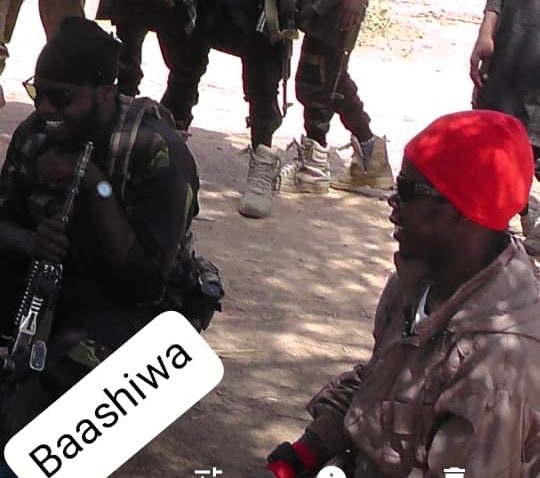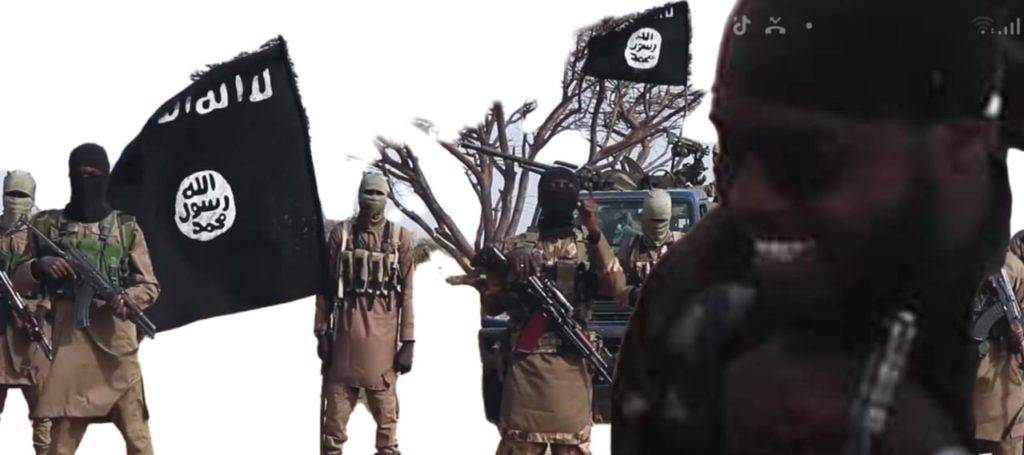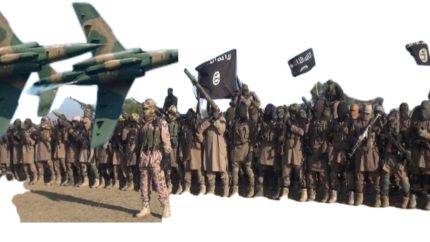Nigerian Military Strikes Down ISWAP: OGM News – A decisive offensive operation in the North East of Borno State has helped the Nigerian military successfully eliminated Ba’a Shuwa, the Nigerian leader of the Islamic State of West Africa Province (ISWAP), alongside numerous fighters. The operation, carried out through a series of airstrikes on January 2, 2024, targeted Kwatan Dilla in Abadam LGA, resulting in the demise of Shuwa and scores of his associates. Intelligence sources, including renowned Counter Insurgency Expert and Security Analyst Zagazola Makama, confirmed the success of the operation, highlighting the destruction of enemy elements and equipment as evidenced in post-strike footage.
End of ISWAP Leader, Ba’a Shuwa Terror Reign
Ba’a Shuwa, who held leadership over multiple ISWAP branches such as the Nigerian Wylayat, Lake Chad, Kwalfarji, Timbuktu Farouq, and Sambisa Mantika, assumed control in 2021 following the death of Abubakar Shekau. His sphere of influence extended over various camps within the Timbuktu and Alagarno axis in the South of Borno, commanding terror activities in locations like Chiralia, Markas Kauwa, Abirma, Buk, Abulam, Dusula, Abbagajiri, and Gorgore.
The deceased ISWAP leader’s high-ranking officers, including Khaid Hanzala, Ba’a Idirisa, Rawana, Abou Ibrahim, Mallam Abubakar, Abou Aisha, and Abou Khalid, orchestrated attacks and operations across strategic areas such as the Maiduguri-Damaturu highway, notably responsible for the recent assault on the electricity towers along this route. Ba’a Shuwa and his cohorts were infamous for their reign of terror, perpetrating attacks, ambushes, and deploying IEDs/mines on roads connecting Damboa, Damaturu-Maiduguri, Askira, Buratai, Buni Yadi, Buni Gari, Gaidam, and other regions within Borno and Yobe States.
The militants strategically concealed themselves in heavily fortified hideouts camouflaged under dense foliage and rocks within the Timbuktu Triangle, evading previous airstrikes.
Impact of Ba’a Shuwa’s Demise and ISWAP’s Activities
Ba’a Shuwa’s demise marks a significant blow to ISWAP’s command structure and operational capacity in the region. His leadership spanned multiple strategic areas, fostering a network of terror across various camps, contributing to widespread instability in Borno and Yobe States. The elimination of Shuwa and his high-ranking officers could potentially disrupt the group’s coordination and execution of attacks, offering a respite to the affected regions.

ISWAP’s continued presence and their hibernation in fortified hideouts indicate the persistence of security challenges despite this successful offensive. The Nigerian military’s capability to target such concealed locations underscores the ongoing efforts to dismantle the militants’ operational infrastructure. Nevertheless, the group’s history of adaptive tactics and fortified hideaways poses a persistent challenge, demanding continuous vigilance and innovative strategies from security forces to root out the remnants of ISWAP and ensure sustained peace in the region.
Ongoing Security Concerns and Future Strategies
The successful airstrike targeting Ba’a Shuwa and his associates reflects a significant milestone in the Nigerian military’s efforts to combat insurgency in the North East. However, the persisting threat posed by remaining ISWAP elements necessitates a multi-faceted approach, combining military precision with intelligence gathering, community engagement, and regional cooperation to address the root causes fuelling extremism and insurgency.
Strategies must focus not only on eliminating key figures within these extremist groups but also on countering radicalization, providing opportunities for affected communities, and fortifying security measures to prevent resurgence. Collaborative efforts among security agencies, neighboring countries, and local communities are pivotal in creating a resilient defense against the persistent threat of insurgency in the region

The Islamic State West Africa Province (ISWAP): A Menace to Northeast Nigeria
In 2016, the Islamic State West Africa Province (ISWAP) sprouted as a splinter faction from Boko Haram, a notorious jihadist militant group entrenched in Northeast Nigeria. This split stemmed from internal strife over leadership and ideological disparities concerning methodologies and targets. ISWAP diverged, pledging allegiance to the Islamic State (ISIS), with a fervent ambition to carve out a caliphate in the Lake Chad region. This ideological shift led to a distinct approach, marked by attacks, abductions, and confrontations with Nigerian security forces, fostering pervasive instability in the area.
ISWAP’s infiltration into the North East region has triggered a harrowing series of assaults on civilians, widespread kidnappings, and fierce encounters with Nigerian security entities. The consequential aftermath has been dire, resulting in mass displacements, extensive casualties, and an ominous atmosphere of insecurity pervasive in the region. Their ruthless actions have catalyzed humanitarian crises, upended livelihoods, and severely impeded developmental initiatives in the affected zones. Consequently, the group’s operations have become a monumental impediment to regional stability and security, casting a shadow of perpetual fear over the inhabitants of Northeast Nigeria.
Table of Contents
Discover more from OGM News NG
Subscribe to get the latest posts sent to your email.














